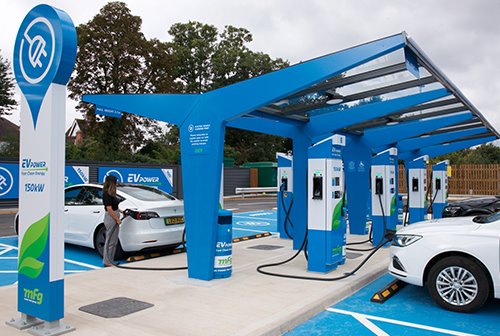
MFG launched its UK EV Power roll-out in March 2021. The company aims to install a total of 3,000 ultra-rapid 150kW, 300kW and 400kW EV chargers at 500 sites by the end of 2030. It say it’s funding the roll-out through its cash flows and strong balance sheet, enabling the Group to commit to c.£400 million investment in ultra-rapid EV chargers.
This year MFG has already installed 230 ultra-rapid EV chargers at 59 locations across its network. It says the investment is necessary as, for example, in England, over 60% of dwellings in cities and urban areas do not have garages or other off-road parking provisions, and so must rely on electricity from publicly accessible networks.
Therefore, the speed of MFG’s EV roll-out will continue to accelerate as MFG positions itself as investing ahead of the curve, aiming to give reluctant EV purchasers the confidence that they could travel as easily as with a petrol or hybrid vehicle.
By 2035, MFG plans to complete its EV rollout to all suitable remaining locations in its network. MFG’s network was voted as the joint best charging network in Zap-Map’s survey of EV drivers in the UK.
MFG hubs consist of between four and eight Ultra-Rapid 150kW EV chargers per site. It claims 150kW chargers can add 100 miles range in approximately 10 minutes, subject to the charging capability of individual car batteries. These will be enhanced with 300kW and 400kW chargers as vehicle battery technology improves, in order to maintain the fastest charging times across the MFG network, and ensure MFG remains the first choice for EV drivers across the UK.
As MFG further establishes itself as a provider of essential infrastructure to enable the UK’s mobility revolution on the strategic road network, it intends to actively target other charging segments and expand its EV offering. The company says the investment demonstrates its commitment to leading the forecourt sector in transitioning to a cleaner future, providing a significant boost to the Government’s decarbonisation and sustainability agenda and emissions target of being net zero by 2050.